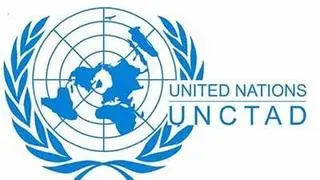The Centre’s move to cast reporting obligations under PMLA on practising Chartered Accountants (CAs), Company Secretaries (CS) and Cost Accountants (CWAs) on specified activities undertaken by them for their clients is a direct outcome of India’s efforts to conform to the recommendations of the Financial Action Task Force (FATF), a global watchdog on money laundering and terror financing.
The measure is intended to enhance their reporting obligations and not include or target such professionals for facilitating money laundering.
Sources said the move should be seen as the country taking further steps to align with the FATF recommendations on how group-wide programmes against money laundering and terrorist financing can be implemented/applied to certain professions—Designated Non-Financial Businesses and Professions (DNFBPs).
FATF, known to be a global standard-setter for anti-money laundering and counter-terrorist financing measures, is an inter-governmental organisation established in 1989 on the initiative of G7 to combat money laundering, terrorist financing, and other threats to the integrity of the global financial system. It comprises 39 member countries and territories, as well as regional organisations and other stakeholders.
DNFBPs are defined in the FATF Glossary and consist of a wide range of sectors —casinos, real estate agents, dealers in precious metals, lawyers, notaries, and other independent legal practitioners, and accountants, trust and company service providers.
India has, in recent years, brought several sectors as reporting entities under PMLA including intermediaries in casino, crypto exchanges and virtual digital assets. Already banks and financial institutions are categorised as reporting entities under the Prevention of Money Laundering Act (PMLA). Real estate agents and dealers in precious metals are also already categorised as ‘reporting entity’. Now even CAs, CS and CWAs have been brought in as reporting entity.
“This latest step will also come in handy for the Finance Ministry to reaffirm its reformist credentials before the FATF, which is likely to later this year review India’s performance in introducing policies around anti-money laundering (AML)/combating the financing of terrorism (CFT),” said a source.
FATF Review
The FATF review on India is set to begin this year, with an on-site evaluation of India’s actions scheduled for November 2023. Also, India’s activities are set to be discussed at the FATF Plenary meeting in June 2024.
It maybe recalled that India last came under investigation by FATF in June 2010. According to the FATF, it has twice postponed its review of India’s AML-CFT regime since 2019.
The FATF conducts mutual evaluations of member countries’ anti-money laundering and counter-terrorist financing systems to assess their compliance with the FATF’s standards and to identify areas where improvements are needed.
The organisation maintains two lists to identify countries that are not complying with its recommendations — the grey list and the black list.
It’s important to note that being on either list can have significant consequences for a country’s economy and financial institutions, as it can lead to increased scrutiny and reduced access to international financial markets, sources said.








Comments
Comments have to be in English, and in full sentences. They cannot be abusive or personal. Please abide by our community guidelines for posting your comments.
We have migrated to a new commenting platform. If you are already a registered user of TheHindu Businessline and logged in, you may continue to engage with our articles. If you do not have an account please register and login to post comments. Users can access their older comments by logging into their accounts on Vuukle.